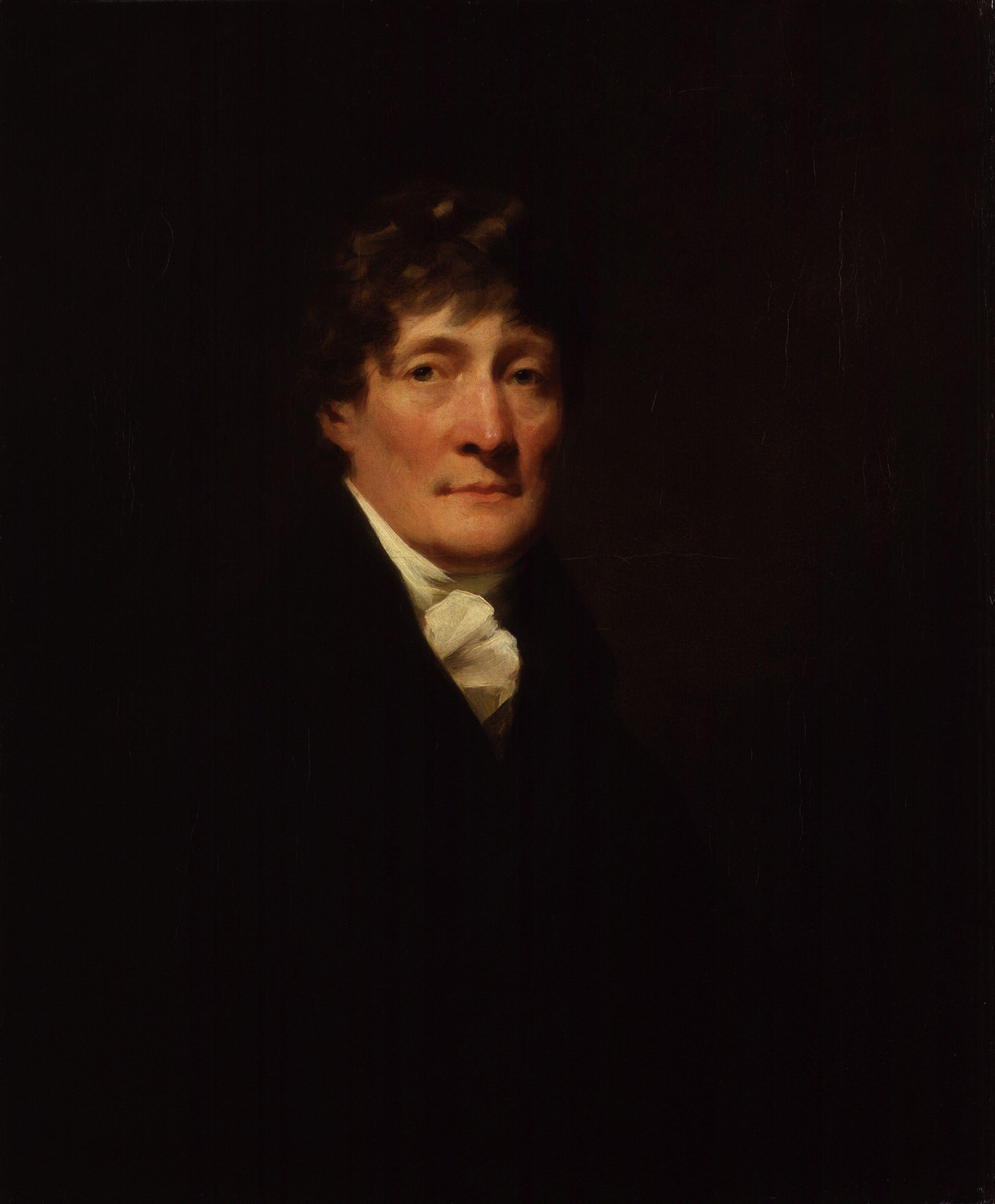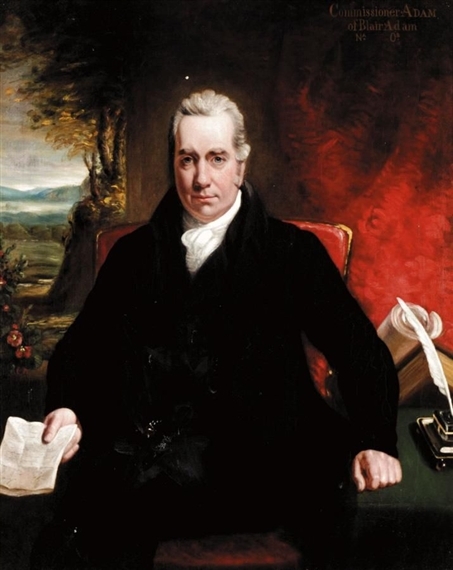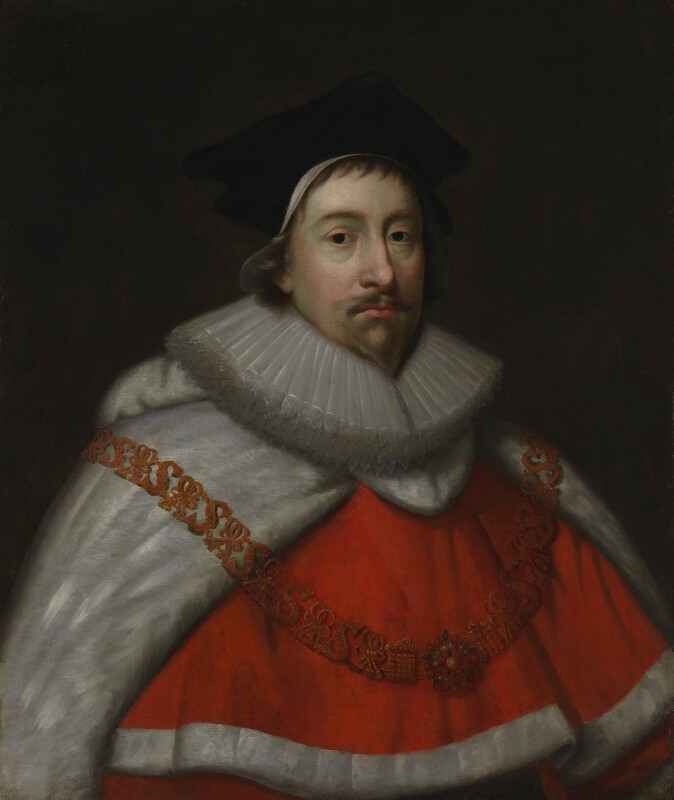|
Samuel Shepherd
Sir Samuel Shepherd KS PC FRSE (6 April 1760 – 3 November 1840) was a British barrister, judge and politician who served as Attorney General for England and Wales and Lord Chief Baron of the Scottish Court of Exchequer. Early life and career Shepherd was born on 6 April 1760 to Henry Shepherd, a London jeweller. From 1773 to 1774 he was educated at Merchant Taylors' School and then at a different school in Chiswick, entering the Inner Temple in July 1776. After a pupillage under Charles Runnington he was called to the Bar on 23 November 1781. He soon joined the home circuit, a place where, along with the Court of Common Pleas, he had great success. From 1790 onwards he gradually became deaf, rejecting the honour of being made a King's Counsel in 1793 but accepting a promotion to Serjeant-at-Law in 1796, becoming a King's Serjeant the next year and, after the death of Serjeant Cockell, King's Ancient Serjeant. In 1812 he became Solicitor-General of the Duchy of Cornwal ... [...More Info...] [...Related Items...] OR: [Wikipedia] [Google] [Baidu] |
The Right Honourable
''The Right Honourable'' ( abbreviation: ''Rt Hon.'' or variations) is an honorific style traditionally applied to certain persons and collective bodies in the United Kingdom, the former British Empire and the Commonwealth of Nations. The term is predominantly used today as a style associated with the holding of certain senior public offices in the United Kingdom, Canada, New Zealand, and to a lesser extent, Australia. ''Right'' in this context is an adverb meaning 'very' or 'fully'. Grammatically, ''The Right Honourable'' is an adjectival phrase which gives information about a person. As such, it is not considered correct to apply it in direct address, nor to use it on its own as a title in place of a name; but rather it is used in the third person along with a name or noun to be modified. ''Right'' may be abbreviated to ''Rt'', and ''Honourable'' to ''Hon.'', or both. ''The'' is sometimes dropped in written abbreviated form, but is always pronounced. Countries with common or ... [...More Info...] [...Related Items...] OR: [Wikipedia] [Google] [Baidu] |
King's Counsel
In the United Kingdom and in some Commonwealth countries, a King's Counsel ( post-nominal initials KC) during the reign of a king, or Queen's Counsel (post-nominal initials QC) during the reign of a queen, is a lawyer (usually a barrister or advocate) who is typically a senior trial lawyer. Technically appointed by the monarch of the country to be one of 'His erMajesty's Counsel learned in the law', the position originated in England and Wales. Some Commonwealth countries have either abolished the position, or renamed it so as to remove monarchical connotations, for example, 'Senior counsel' or 'Senior Advocate'. Appointment as King's Counsel is an office, conferred by the Crown, that is recognised by courts. Members have the privilege of sitting within the inner bar of court. As members wear silk gowns of a particular design (see court dress), appointment as King's Counsel is known informally as ''receiving, obtaining,'' or ''taking silk'' and KCs are often colloquially ca ... [...More Info...] [...Related Items...] OR: [Wikipedia] [Google] [Baidu] |
Streatley, Berkshire
Streatley is a village and civil parish on the River Thames in Berkshire, England. The village faces Goring-on-Thames. The two places share in their shops, services, leisure, sports and much of their transport. Across the river is railway station and the village cluster adjoins a lock and weir. The west of the village is a mixture of agriculture and woodland plus a golf course. The village has a riverside hotel. Much of Streatley is at steeply varying elevations, ranging from 51m AOD to 185m at Streatley Warren, a hilltop point on its western border forming the eastern end of the Berkshire Downs. This Area of Outstanding Natural Beauty is topped by the 87-mile The Ridgeway path, which crosses the Thames at Goring and Streatley Bridge. Location Streatley is centred north-west of Reading and south of Oxford. Its developed area occupies half of the narrow Goring Gap on the River Thames and is directly across the river from the Oxfordshire village of Goring-on-Thames. The two ... [...More Info...] [...Related Items...] OR: [Wikipedia] [Google] [Baidu] |
Thomas Charles Hope
Thomas Charles Hope (21 July 1766 – 13 June 1844) was a British physician, chemist and lecturer. He proved the existence of the element strontium, and gave his name to Hope's Experiment, which shows that water reaches its maximum density at . In 1815 Hope was elected as president of the Royal College of Physicians of Edinburgh (1815–19), and as vice-president of Royal Society of Edinburgh (1823–33) during the presidencies of Walter Scott and Thomas Makdougall Brisbane. He founded a chemistry prize at the University of Edinburgh. Charles Darwin was one of Hope's students, and Darwin viewed his chemistry lectures as highlights in his otherwise largely dull education at the University. Early life Born in Edinburgh, the third son of Juliana Stevenson and surgeon and botanist John Hope, he lived at High School Yards on the south side of the old town. He was educated next door to his house at the High School, the University of Edinburgh (MD 1787) and the University of Pari ... [...More Info...] [...Related Items...] OR: [Wikipedia] [Google] [Baidu] |
Henry Mackenzie
Henry Mackenzie FRSE (August 1745 – 14 January 1831, born and died in Edinburgh) was a Scottish lawyer, novelist and writer sometimes seen as the Addison of the North. While remembered mostly as an author, his main income came from legal roles, which led in 1804–1831 to a lucrative post as Comptroller of Taxes for Scotland, whose possession allowing him to follow his interest in writing. Biography Mackenzie was born at Liberton Wynd in Edinburgh on 26 July 1745. His father, Dr Joshua Mackenzie, was a distinguished Edinburgh physician and his mother, Margaret Rose, belonged to an old Nairnshire family. Mackenzie's own family descended from the ancient Barons of Kintail through the Mackenzies of Inverlael. Mackenzie was educated at the High School and studied law at University of Edinburgh. He was then articled to George Inglis of Redhall (grandfather of John Alexander Inglis of Redhall), who was attorney for the crown in the management of exchequer business. Inglis had his E ... [...More Info...] [...Related Items...] OR: [Wikipedia] [Google] [Baidu] |
William Adam Of Blair Adam
The Right Hon. William Adam of Blair Adam (2 August 175117 February 1839) was a Scottish advocate, barrister, politician and judge. He served as Solicitor General for Scotland (1802–1805) and as Lord Chief Commissioner of the Jury Court (1815–39). His political career was affected by his father's periodic financial problems, as sometimes the family had substantial wealth and sometimes it was in difficulties, forcing Adam to concentrate his attention on his legal practice. He rose to be Lord Lieutenant of Kinross-shire. His most important contribution to Scottish Law was probably the introduction of trial by jury on civil (non-criminal) cases. Life William Adam was the only surviving son of Jean Ramsay and John Adam of Blairadam, architect and master mason to the Board of Ordnance in Scotland, of Maryburgh, Kinross. His uncle was the architect Robert Adam. Blairadam House where he was born lies just north of Kelty in Fife but on an isolated side road. He was educate ... [...More Info...] [...Related Items...] OR: [Wikipedia] [Google] [Baidu] |
Radical War
The Radical War, also known as the Scottish Insurrection of 1820, was a week of strikes and unrest in Scotland, a culmination of Radical demands for reform in the United Kingdom of Great Britain and Ireland which had become prominent in the early years of the French Revolution, but had then been repressed during the long Napoleonic Wars. An economic downturn after the wars ended brought increasing unrest, but the root cause was the Industrial Revolution. Artisan workers, particularly weavers in Scotland, sought action to force the government to enact Luddite protective restrictions. Gentry fearing revolutionary horrors recruited militia and the government deployed an apparatus of spies, informers and agents provocateurs to stamp out the movement. A ''Committee of Organisation for Forming a Provisional Government'' put placards around the streets of Glasgow late on Saturday 1 April, calling for an immediate national strike. On Monday 3 April work stopped in a wide area of centra ... [...More Info...] [...Related Items...] OR: [Wikipedia] [Google] [Baidu] |
Bloomsbury Square
Bloomsbury Square is a garden square in Bloomsbury, in the London Borough of Camden, London. Developed in the late 17th century, it was initially known as Southampton Square and was one of the earliest London squares. By the early 19th century, Bedford House along the north of the square had been demolished and replaced with terraced housing designed by James Burton. Geography To the north of the square is Great Russell Street and Bedford Place, leading to Russell Square. To the south is Bloomsbury Way. To the west is the British Museum and Holborn is the nearest underground station to the southeast. There are gardens in the centre of the square. History The square was developed for the 4th Earl of Southampton in the early 1660s and was initially known as Southampton Square. It was one of the earliest London squares. The Earl's own house, then known as Southampton House and later as Bedford House after the square and the rest of the Bloomsbury Estate passed by marriage fr ... [...More Info...] [...Related Items...] OR: [Wikipedia] [Google] [Baidu] |
Chief Justice Of The Common Pleas
The chief justice of the Common Pleas was the head of the Court of Common Pleas, also known as the Common Bench or Common Place, which was the second-highest common law court in the English legal system until 1875, when it, along with the other two common law courts and the equity and probate courts, became part of the High Court of Justice. As such, the chief justice of the Common Pleas was one of the highest judicial officials in England, behind only the Lord High Chancellor and the Lord Chief Justice of England, who headed the Queen's Bench (King's when the monarch was male). History Initially, the position of Chief Justice of the Common Pleas was not an appointment; of the justices serving in the court, one would become more respected than his peers, and was therefore considered the "chief" justice. The position was formalised in 1272, with the raising of Sir Gilbert of Preston to Chief Justice, and from then on, it was a formally-appointed role, similar to the positions o ... [...More Info...] [...Related Items...] OR: [Wikipedia] [Google] [Baidu] |
Court Of King's Bench (England)
The Court of King's Bench, formally known as The Court of the King Before the King Himself, was a court of common law in the English legal system. Created in the late 12th to early 13th century from the '' curia regis'', the King's Bench initially followed the monarch on his travels. The King's Bench finally joined the Court of Common Pleas and Exchequer of Pleas in Westminster Hall in 1318, making its last travels in 1421. The King's Bench was merged into the High Court of Justice by the Supreme Court of Judicature Act 1873, after which point the King's Bench was a division within the High Court. The King's Bench was staffed by one Chief Justice (now the Lord Chief Justice of England and Wales) and usually three Puisne Justices. In the 15th and 16th centuries, the King's Bench's jurisdiction and caseload was significantly challenged by the rise of the Court of Chancery and equitable doctrines as one of the two principal common law courts along with the Common Pleas. To recov ... [...More Info...] [...Related Items...] OR: [Wikipedia] [Google] [Baidu] |
Dorchester (UK Parliament Constituency)
Dorchester was a parliamentary constituency centred on the town of Dorchester in Dorset. It returned two Members of Parliament to the House of Commons of the Parliament of the United Kingdom from 1295 to 1868, when its representation was reduced one member. The constituency was abolished by the Redistribution of Seats Act 1885, after which Dorchester was placed in the new Dorset South constituency. In 1918 it was transferred to Dorset West, where it has remained since. Members of Parliament 1295-1629 1640-1868 1868-1885 Election results Elections in the 1830s Ashley-Cooper resigned, causing a by-election. Elections in the 1840s Graham was appointed Home Secretary, requiring a by-election. Elections in the 1850s Sturt resigned in order to contest the 1856 by-election in Dorset Dorset ( ; archaically: Dorsetshire , ) is a county in South West England on the English ... [...More Info...] [...Related Items...] OR: [Wikipedia] [Google] [Baidu] |
House Of Commons
The House of Commons is the name for the elected lower house of the bicameral parliaments of the United Kingdom and Canada. In both of these countries, the Commons holds much more legislative power than the nominally upper house of parliament. The leader of the majority party in the House of Commons by convention becomes the prime minister. Other parliaments have also had a lower house called a "House of Commons". History and naming The House of Commons of the Kingdom of England evolved from an undivided parliament to serve as the voice of the tax-paying subjects of the counties and of the boroughs. Knights of the shire, elected from each county, were usually landowners, while the borough members were often from the merchant classes. These members represented subjects of the Crown who were not Lords Temporal or Spiritual, who themselves sat in the House of Lords. The House of Commons gained its name because it represented communities (''communes''). Since the 19th century, ... [...More Info...] [...Related Items...] OR: [Wikipedia] [Google] [Baidu] |
_(cropped).jpg)








